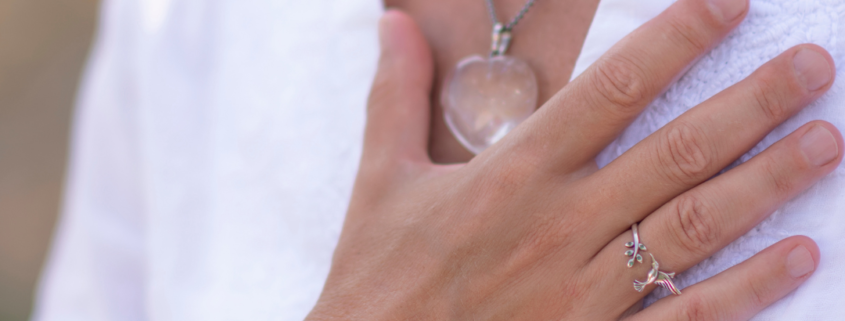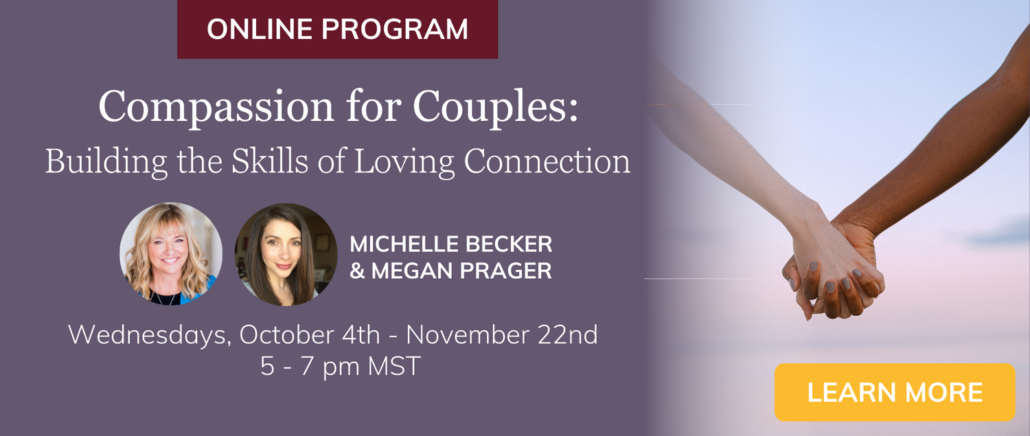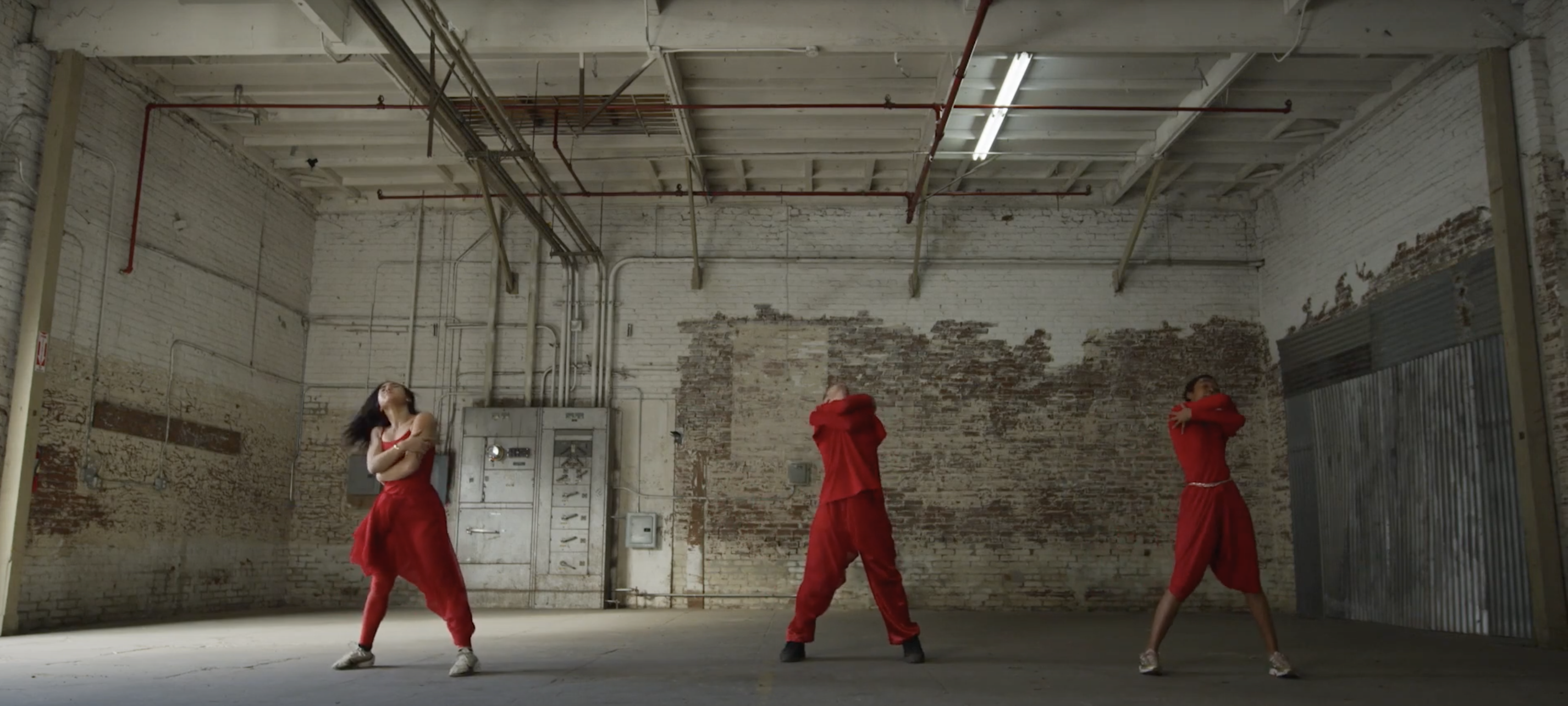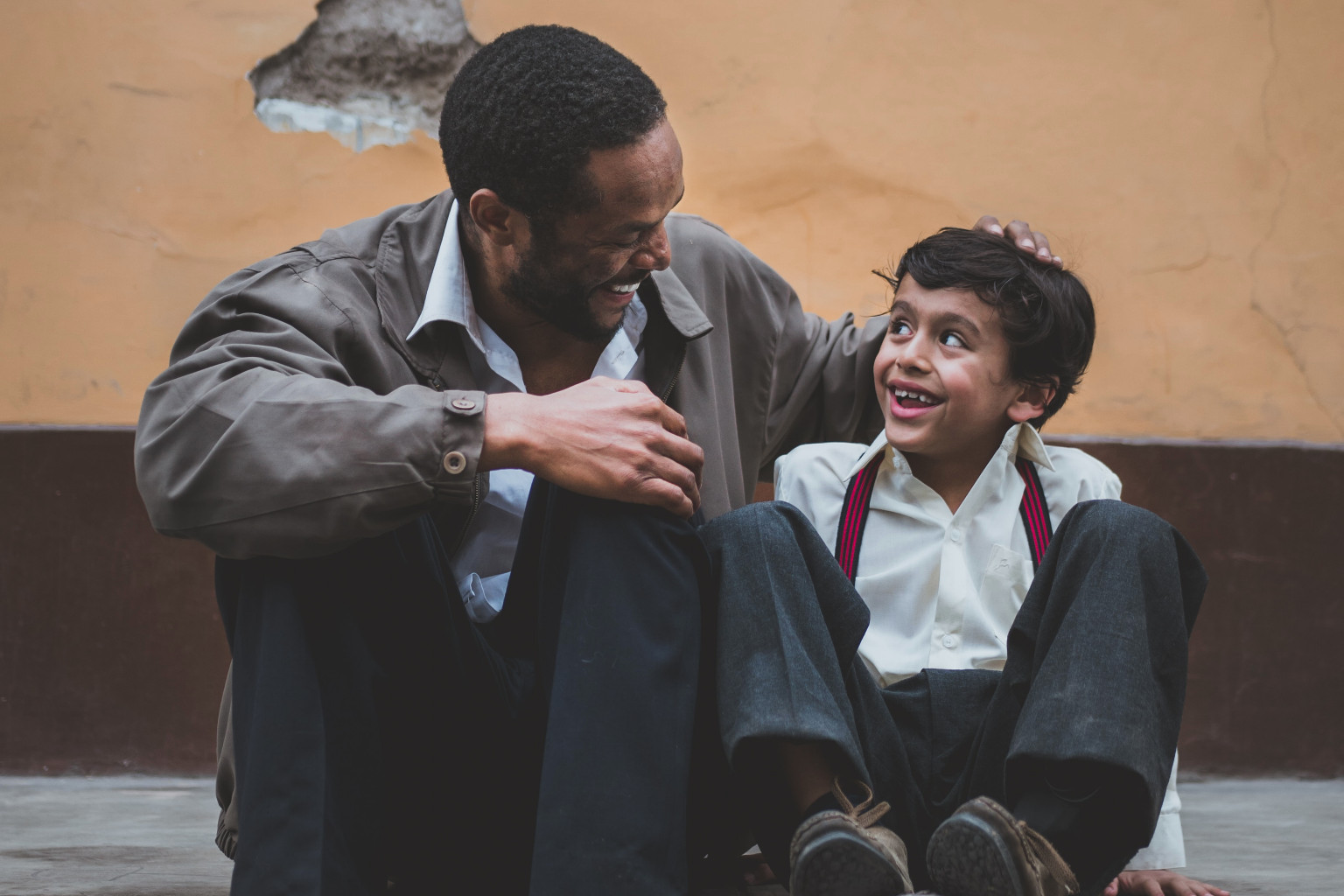White-Knuckling and Self-Compassion
By Megan Prager
I am a recovering white-knuckler.
I share this with you, because I know I am not alone. There are plenty of us “knucklers” out there that stay with pain, sometimes quite literally, until our knuckles become white. Pushing past our limits, fighting through difficulty, sometimes consciously and sometimes not.
I remember several years ago being in a yoga class, and holding a pose that was both too hard and long for my body. I stayed, gritting my teeth, feeling the pain, until the teacher told us to release. Nevermind that I had to limp to my car that day, or that it took my knee several months to feel “normal” again. For this white-knuckler what mattered is that I stayed in that pose for as long as the teacher was holding me in it; staying with the difficulty, no matter the pain, in my mind equalled “success”.
Here’s the challenge with white-knuckling: it’s not black and white. Sometimes we may find that white-knuckling leads to developing strengths, discovering insights, and/or making it through the tough times to grow into better relationships with self and others. There are also times when we have no choice but to white-knuckle our way through difficulty. I have watched some of my greatest teachers do this, and find myself in gratitude and awe of their resiliency.
And then there are times, and goodness do I have plenty of these, when white-knuckling is a choice that is creating unnecessary suffering. I have seriously injured myself physically by ignoring pain in the spirit of becoming stronger. I have fought my way through meditations that ironically, were in the spirit of kindness and compassion. I have stayed in work and romantic relationships too long, not wanting to be the one to admit “defeat” or that things weren’t “ok” by letting go first.
Many of us have grown up being either taught or encouraged to stay with difficulty. But, when given the choice, many of us are out of practice in knowing when it is skillful to let go, to stop, to prevent overwhelm and injury.
Wise discernment was a concept the Mindful Self-Compassion program taught me that has allowed me to recover from the constant and tiring “fight” of white-knuckling my journey. Because there is no “One Size Fits All” for how to be with difficulty, the best we can do is be aware of our experience (mindfulness) and discern what is the most kind and useful response to alleviate suffering (compassion). The great news is that this is a trainable skill, which we can more quickly access through time and practice.
For some of us white-knucklers, there is a fear that self-compassion in the face of difficulty will lead us into self-indulgence, or just giving into whatever we want in the moment. But here’s the thing about self-compassion- it never creates more suffering, it alleviates it.
This means that a self-compassionate response to difficulty is not about short-term pleasure, but about what is good for us in the long term. This is probably why research has found self-compassionate people engage in healthier behaviors (Sirois, 2015) like exercise (Magnus, Kowalski & McHugh, 2010), eating well (Schoenefeld & Webb, 2013), and going to the doctor more regularly (Terry et al., 2013). Self-compassion is about what is uniquely good for each of us in the midst of difficulty. For example, for those of us who have a tendency to be a little more wishy-washy in a difficult meditation, learning how to kindly stay may help reduce our suffering in the long-term and be the most self-compassionate thing to do. And for those of us who tend to lose sight of intention or our own well being in the spirit of persistence in a practice (or life situation), learning how and when to let go may be the wisest and most skillful choice.
For this recovering white-knuckler, it has been deeply relieving to know there is another way to be and learn in the world, and that knowing when to let go is just as valuable and “successful” as knowing when to stay. Mindful Self-Compassion gives us each the capacity to tune into our own inner wisdom by noticing what we are experiencing, and wisely discern how to skillfully care for ourselves in difficulty. Sometimes asking ourselves “What would I tell a dear friend?” or “What do I need?” can help us access this wisdom. In this way, you do not have to wait for a teacher (be it a person or injury!) to tell you to “stay” or “let go” in a difficult yoga pose or life situation- you are that source of permission and wisdom.
Join Megan and Michelle Becker online this fall!
About the Author
Megan Prager is a Certified Mindfulness Based Stress Reduction Instructor, a Certified Mindful Self-Compassion Instructor, and Compassion Programs Director and University Liaison at UC San Diego Center for Mindfulness. Megan is also an Adjunct Faculty member at San Diego State University and a Certified yoga Instructor. In addition to teaching Mindfulness-based programs, Megan specializes in developing and delivering mindfulness trainings for Fortune 500 companies as well as for educational, healthcare, and academic settings. Megan is one of the founders of the UCSD Center’s Work-Life Integration Program and co-founder and teacher trainer for the UCSD Professional Training Institute’s 9-Day MBSR Teacher Training Practicum. She is currently collaborating with Universities to establish and instruct Mindfulness and Compassion courses at the collegiate level. In all her ventures, Megan’s passion and mission are the same: to empower individuals with an understanding of the important role they play in shaping their lives and well being. Megan believes through compassionate awareness individuals are able to utilize the best resource they have: themselves.







